What makes a writer?
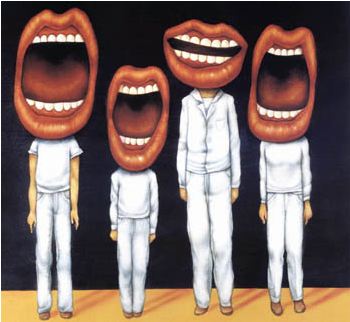
By strictest definition, the term writer applies to anyone who writes. Period. Even a grocery list has a writer, after all.
Therefore, anyone who jots down words can call themselves a writer (and often does.) These days, everyone fancies themselves ‘writerly’ and we seem to have more writers than readers out there. Why is this?
We are a species of compulsive communicators; this much is sure. Should a naturalist from another planet do a documentary about us -- a la National Geographic -- we’d likely appear nothing more than a huge flock of birds all screeching at the top of our lungs. A huge gaggle of gabbers.
Our drive to communicate has much to do with the success of our species. That’s why we developed language, and since the invention, we have been driven to share our thoughts and often, to record them for posterity. Throughout human history we’ve told stories, made speeches, given sermons, and we’ve written it all down.
Oh how we write! Letters, essays, journals, stories, books of all sorts. We’ve amassed knowledge in written form in great libraries, lost them, and written them all again – many times over.
No sooner does a human have a thought than he is driven to share it.
It’s what we are.



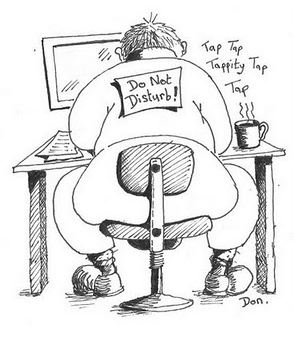
A mercifully brief history of writing
Even back in cave-man days, there were those individuals who had a gift, and while all may possess a story worth hearing, a certain few could do so with flair. They became the official “speakers.” They commanded the audiences. The rest of us had to settle for sharing with those close to us, regaling our thoughts one to one and ignoring the glaze of boredom in our listener’s eye while we did.
Not everyone had the gift.
Later, when we’d learned to record our utterances in written form, the skill was a close kept secret for the select few. Not many learned to write; not many learned to read. Written language was a mark of the highest education, of status and station, of privilege. So elevated was the written word, it wasn’t wasted on stories, thoughts and feelings. Writing was reserved for the glory of God. And God was far too great to share with the common man directly.
The story-tellers kept their trade to the spoken word. And they were busy.
But times, technology and attitudes change. The Gutenberg press ushered in an era of affordable and accessible writings – but still only for the small segment of society that could read. But another few centuries passed, and those invisible true controllers of the world began to see the possible commercial possibilities of writing. Which meant, the ability to read had to be shared. (And don’t let anyone tell you it happened out of the goodness of men’s hearts.)
The story-tellers became story writers. And the modern world was born.
Today’s technology means that everyone has access to the eyes and hearts of the world. Now everyone’s bashing out their opinions, their stories, their poetry… The sheer abundance of the written word on the internet dwarfs all the libraries of the world put together. Most of it is drivel – I agree. And some of it is downright bizarre – rantings and ravings of the uneducated and ignorant, scary.
Still, as in the days of the cave-man, there are those who write with flair and they command the audiences. The rest of us ….
So now to the point
First, what is it we are attempting to do when we sit down to write? That's easy. We want to communicate. But what are we communicating? What is it that makes a writer in the full sense of the word, as opposed to just someone who writes?
Is it our ideas? We all have ideas, but I once read that if we have even one original idea in our lifetime we are so exceptional – and the metaphor escapes me, the chances are so astronomical. Despite all the feel-good pop-psychology telling us the opposite, our views, experiences, opinions are unlikely to be unique. Yes, yes, I know. We are all individuals and as such own a perspective entirely our own. If that were enough to be a writer, the planet is littered with writers. Seven billion of them.
I found an interesting quote addressing this ego-driven idea.
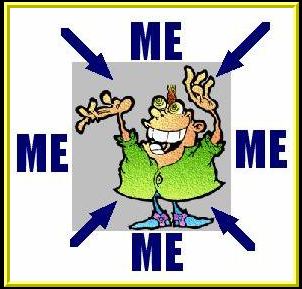
“The proliferation of mass graphomania among politicians, cab drivers, women on the delivery table, mistresses, murderers, criminals, prostitutes, police chiefs, doctors, and patients proves to me that every individual without exception bears a potential writer within himself and that all mankind has every right to rush out into the streets with a cry of "We are all writers!" The reason is that everyone has trouble accepting the fact that he will disappear unheard of and unnoticed in an indifferent universe, and everyone wants to make himself into a universe of words before it's too late. Once the writer in every individual comes to life (and that time is not far off), we are in for an age of universal deafness and lack of understanding.” -- Milan Kundera
The very idea we are so special, so unique, so distinctive, exclusive, one-of-a-kind is the one thing we share with every other single person in the world.
No, our ideas are not enough to make us a writer. On the other hand, it’s impossible to be a writer without ideas.
But how many of us express ideas that are truly our own? Do we give thought, analysis, evaluation, study opposing views, and come to a considered conclusion? Not many. Most of us regurgitate the unexamined product of our programming (and yes we are programmed and very skillfully, too) without thought. We echo the words of our heroes sans question.
Is this writing? (I mean real writing.)
I don’t think so.

Is it how we express our ideas? Certainly, a facility with language is a necessity. One needs a decent vocabulary and the ability to use it. Which brings up my favorite complaint.
A writer must have a strong grasp of the skills of writing. It amazes me how many not only sit down and write without any idea of construction, style or grammar, but publish the outcome! Run-on sentences, lack of paragraph structure, poor grammar, no punctuation or poorly used punctuation, lack of consistent tense, shifting in point of view, improper conjugation of verbs – need I go on?
Can a lawyer practice without understanding the law? Can an architect design a house without knowledge of basic engineering? Can a doctor heal without studying anatomy?
Why then, oh why, do so many decide they are writers without a grasp of the tools of the trade? If you want to be a writer, then learn how. There are many, many places to do so.
Learn that a sentence has a subject and a predicate. And only one. Understand that a paragraph deals with one idea, one point of view, one speaker and when that changes, you need a new paragraph. That’s a start.
It’s not enough to gush out words. If they’re unintelligible, what’s the point? If reading your work is tedious, requiring great effort to understand, boring -- or worse having no voice, no point of view, no skill, no one is going to read it.
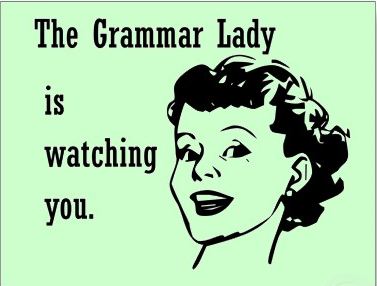
With considerable amusement I followed a forum here on Hubpages that asked: “Which is more important, grammar and punctuation or ideas?” Many argued that style and construction were of no importance in our modern world, and as long as you were understood, who cared? In fact, they were the majority. I went to read some of their hubs. I didn’t stay long. No matter how brilliant they thought their ideas, what they produced was babble. Insult intended. Don't ask me to give attention and thought to something scribbled off with no effort.
Have a little pride in what you do. You want to be a writer? Learn the ropes. Don't dash off any old thing and hang it out in the public eye. Use those tools anyone with any pretensions of being a writer should have at hand.
I’ve been a writer my entire life. I teach; I coach and I edit. Here I am with fifty years of practice to my name and I still keep three books beside my computer:
- Dictionary
- Thesaurus
- Grammar: Writing, usage and style
I use them often. I do not rely on spellcheck, or Word
(which can’t even recognize a sentence.) I've studied the mechanics of writing for years, and I'm still learning.
A writer must know how to write. That’s the first rule, and while it may be bent from time to time, it can never be broken.
Is that it? All we need is an idea and the skills of language? No, there’s much more.
A voice. All good writers develop a voice, a style of writing, a tone recognizable as his in everything he writes. (I should add I don’t speak of ‘content’ writing which has no soul; after all, computers are competing with humans to do that. I speak of writing of artistic merit.) Real writers do this, but no one can say exactly what it is, where it comes from, how one gets it. It just is. Perhaps we’re back to the cave-man and some having the gift…
No, I don’t think so. I think the voice develops with practice, with a body of work. It’s unconscious, most likely, but grows as our experience and facility with writing does. I think it’s born of confidence. My favorite hubbers here have it. I can read their work and know immediately who wrote it.
They are not those who write in encyclopedic style, nor those writing what amounts to ad copy, though if they did write in those formats, it would still be their voice. There is a flavor to their work that defies description and this is what makes their words writerly.
Style. Part of voice, maybe, style also comes to a writer with practice and experience. Some writers just have a special touch, a way of turning a phrase, the use of simile, metaphor, vivid word usage that leaves us feeling satisfied, knowing we’ve read a real writer.
The development of style relies on having that necessary grasp of the tools of writing, without which it is an attainable goal. Sentence structure and how to vary it, the development of a certain rhythm, pacing and its usage, word selection and finding just the right one -- we’re right back at the last section. Without the skills …
“But I write naturally,” says the one who believes the term writer belongs to anyone who puts words on paper. And now we’re back to ego.” I’m so special and what I have to say so original and important, the rules of writing don’t apply to me.” Yes, it’s true some writers write outside the normal boundaries, and successfully, too. But understand, they do so with a full understanding of writing. They haven’t done this because they don’t know any better – they can break the rules because they are so skillful, they make it work.
Oh for the love of humanity, you cry, will you stop belaboring the point?
Okay. I hope it has been taken.
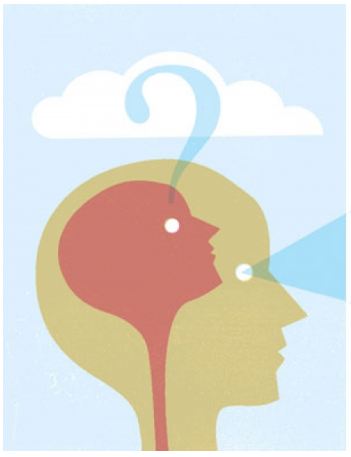
There’s one thing left to discuss. An absolute necessity.
A writer needs to use his soul. A writer must write with honesty, with empathy, with understanding. A writer must write from deep within himself, must express that inner vision that speaks to the reader and finds common ground within that reader.
Which means what? First, write truthfully. If you’re writing from your fingertips only, your words will be nothing more than that – superficial, empty, vacuous. If something has moved you enough to write about it, then you must have feelings on the subject. Use them. Express them.
After all, your truth, your honest reactions – that is what the reader wants to share. We are trying to communicate, are we not?
In closing
Here’s a comment left for me on my hub about publishing my new novel.
“Not sure what sort of comment to leave. I want to say something clever and writerly that makes me sound like more of an equal, after all I was calling myself a writer up till five minutes ago. And I thought, oh yeah, another 'writer,’ bet her page isn't any good - but it was. Anyway, having recovered my composure, after all we can't all be proper writers but at least I can still go on churning out Hub page stuff...”
It’s this comment that prompted me to write this article.
Aside from the obvious gratification of my ego, a couple of things struck me here. First, being a good writer has little to do with cleverness and more to do with mechanics coupled with heart. This writer gets five stars for writing with honesty. As for the mechanics – well…
But that’s not my point. It’s the phrase, “churning out Hubpage stuff” that stuck in my craw.
Is that what this site is for?
When I signed up, this was advertised as a site for writers. Writers should be working to improve, hone their skills, make connections, build a portfolio they can be proud to call their own. Not churning out “stuff.” The world is drowning in “stuff.”
Let’s move beyond “stuff.” Let’s make this a “writers’ site” with all that entails. There’s room for all levels, from beginners to already successful published writers. Let’s grow as writers together. Let’s use this site and the connections we make to become the writers we want to be. Should be.
Who says we can't all be proper writers?
- Good Writing Is ... A series on the mechanics of writing. Number one.
A link to the first in a series on good writing. There are nine, so far and they are all linked together. - Lynda M. Martin - Writer - Editor
A link to my website on editing and writing. Just in case you want to discuss your growth as a writer. - Creative Writing Classes - Writers\' Village University
Online creative writing courses, fiction, non-fiction and poetry workshops. Over 300 writing courses and workshops are free to members. Active, supportive online community since 1995. - 10 Universities Offering Free Writing Courses Online
Students searching for 10 Universities Offering Free Writing Courses Online found the following information relevant and useful.








